Yaara Silly Silly est un film avec Paoli Dam
Yaara Silly Silly (2015)
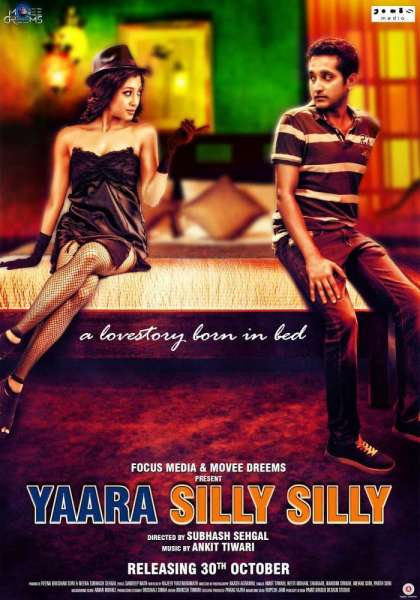
Si vous aimez ce film, faites-le savoir !
Durée 1h47
Note55%










Yaara Silly Silly is a romantic film directed by Subhash Sehgal which portrays a two-night relationship between a prostitute & her customer.
Acteurs
Commentaires
Postez un commentaire :
Suggestions de films similaires à Yaara Silly Silly
Il y a 61 films ayant les mêmes acteurs, pour avoir au final 61 suggestions de films similaires.Si vous avez aimé Yaara Silly Silly, vous aimerez sûrement les films similaires suivants :

Chaya Manush (2014)
Acteurs Parambrata Chatterjee, Raima Sen, Soumitra Chatterjee, Paoli Dam, Kaushik Ganguly
Note71%






Basanta Utsav (2013)
Acteurs Parambrata Chatterjee, Arunima Ghosh, Pijush Ganguly, Paoli Dam, June Malia, Laboni Sarkar
There are five different stories in the film.
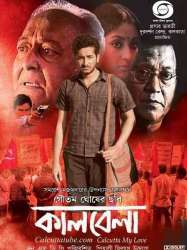
Kaalbela (2009)
, 2h55Réalisé par Goutam Ghose
Genres Drame
Thèmes Le thème de l'éducation
Acteurs Parambrata Chatterjee, Paoli Dam, Soumitra Chatterjee, Rudranil Ghosh, Shantilal Mukherjee
Note70%





Animesh Mitra is simpleton who arrives at Calcutta from Jalpaiguri, during hostile times (1967), to study at the Scottish Church College. He is scheduled to take refuge at the residence of his father’s friend Mr. Debabrata, but he accidentally gets shot in the limb and ends up at the Calcutta Medical College. Eventually things move on and Animesh develops a deep friendship with Debabrata’s daughter Neela. He takes admission in the B.A classes of Scottish Church College on Bengali Literature and ultimately becomes intertwined with the unresting times of the youth intellect.

Obhishopto Nighty (2014)
Genres Comédie
Acteurs Paoli Dam, Indraneil Sengupta, Jisshu Sengupta, Parambrata Chatterjee, Tanusree Chakraborty, Arunoday Banerjee - Rahul
Note55%





The story of the film revolves around a cursed nightie which changes hands in a logical manner, not magically. The original owner of the nightie had experienced unfulfilled love, which ultimately led to a curse on it.

Thanda Theke Aschi (2010)
Genres Drame, Thriller, Policier
Acteurs Parambrata Chatterjee, Rudranil Ghosh, Paoli Dam, Sabyasachi Chakrabarty, Srabanti Chatterjee, Dulal Lahiri
Note70%





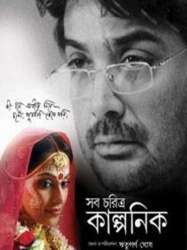
Shob Charitro Kalponik (2009)
Réalisé par Rituparno Gosh
Genres Drame
Acteurs Prosenjit Chatterjee, Bipasha Basu, Paoli Dam, Jisshu Sengupta
Note68%





Non-resident Bengali Radhika (Bipasha Basu) marries the thespian poet Indranil Mitra (Prosenjit Chatterjee) to settle in Kolkata. While Indranil continues his surveillance of the surreal world of words, rhythms, rhymes and imaginations Radhika single-handedly pulls out the private and public aspects of conjugal life. Radhika gets wholesome support from their housemaid Priyobala Das (also called Nondor ma). While the apparently irresponsible and introverted Indranil does one menace after other (like quitting his job after getting an award), Radhika stands like a rock to make the family financially sound.

Moner Manush (2010)
, 2h30Réalisé par Goutam Ghose
Origine Bangladesh
Genres Drame, Biographie, Historique
Acteurs Prosenjit Chatterjee, Raisul Islam Asad, Chanchal Chowdhury, Paoli Dam, Priyanshu Chatterjee, Tathoi Deb
Note78%





Rabindranath Tagore’s elder brother Jyotirindranath Tagore, a Western educated bright young man from the 19th century Bengal met the octogenarian Lalan Fakir and drew a portrait of the poet saint in the former houseboat afloat on the Padma river. Jyotirindranath, an urban intellectual exchange views with the man of native wisdom. Their exchange of ideas forms the cinematic narrative of this film. The narrative is a saga of the life and time of Lalan Fakir and his liberal sect who lived a life of high order in an otherwise superstitious 19th century Indian society. Lalan inherited the best of the liberal and enlightened tradition of Hinduism, Buddhism and Islam to develop a philosophy of life which is extremely secular and tolerant. Thus became an easy prey for the fundamentalists from the Hindu and the Muslim institutions. They were the parallel stream flowing freely in the heart of rural Bengal when men like Tagore were germinating ideas of the Bengal Renaissance. The love and compassion of Lalan is relevant more than ever in today’s world of intolerance and hate.
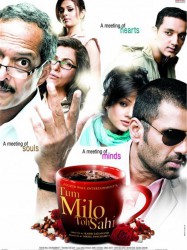
Tum Milo Toh Sahi (2010)
, 2h8Réalisé par Kabir Sadanand
Genres Drame, Comédie
Acteurs Nana Patekar, Dimple Kapadia, Suniel Shetty, Vidya Malvade, Anjana Sukhani, Mohnish Bahl
Note57%





Un avocat de la vieille école se propose d'accompagner la propriétaire d'un café dans une bataille juridique aux ramifications personnelles et professionnelles.

Brake Fail (2009)
Réalisé par Kaushik Ganguly
Acteurs Parambrata Chatterjee, Swastika Mukherjee, Annu Kapoor, Saswata Chatterjee, Arindam Sil, Paran Bandopadhyay
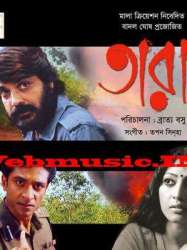
Tara (2010)
Genres Drame, Thriller, Romance
Acteurs Prosenjit Chatterjee, Paoli Dam, Tota Roy Choudhury, Goutam Halder, Piya Sengupta
Note60%





 Connexion
Connexion


